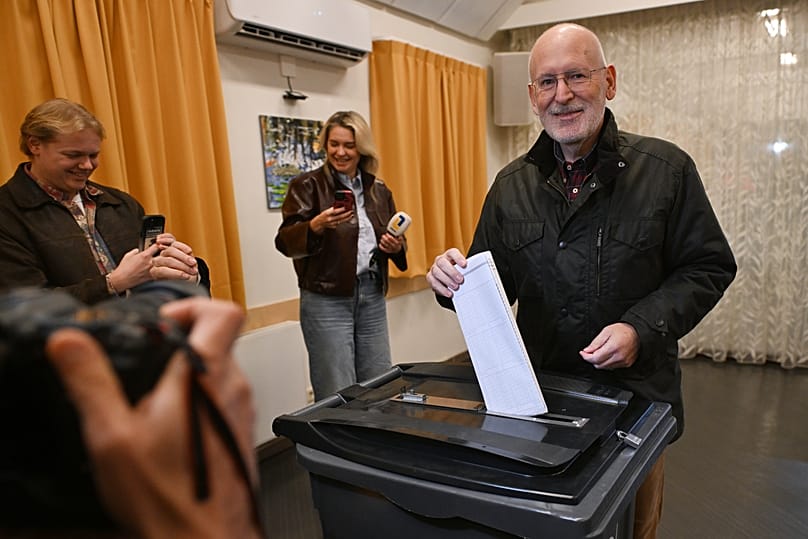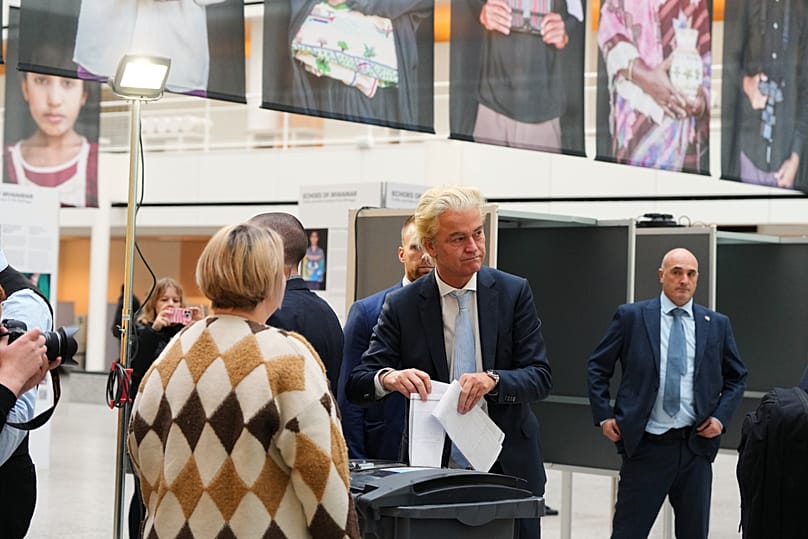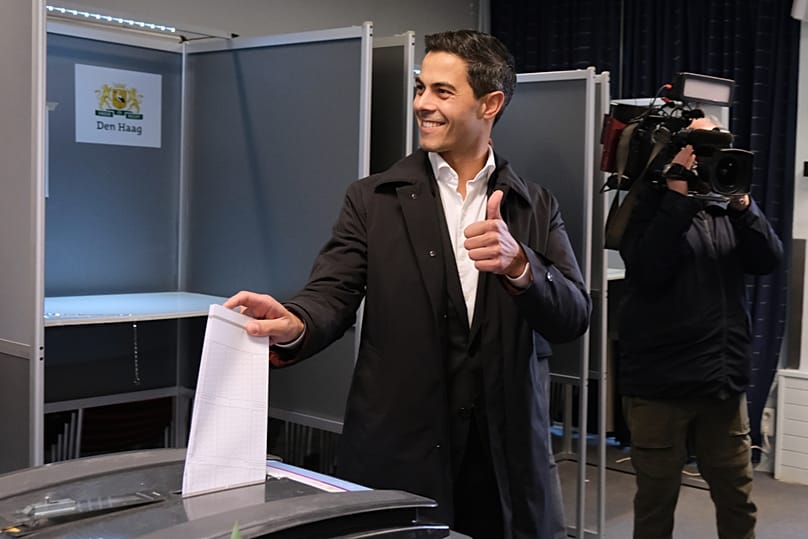The outcome of Wednesday's vote in the Netherlands could determine the strength of the far-right in a knife-edge race.
Dutch voters began casting their ballots across the Netherlands on Wednesday in a close-run snap election called after far-right Geert Wilders brought down the outgoing four-party coalition in a dispute over immigration.
The campaign echoed issues that resonate across Europe, focusing on how to rein in migration and tackle chronic shortages of affordable housing.
Final opinion polls released on Tuesday evening indicated an extremely tight race between Geert Wilders' Party For Freedom (PVV) and more moderate parties, including the Green Left Labour Party (GL-PvdA), centre-left D66 and centrist Christian Democratic Party (CDA).
While PVV maintained a significant lead in polls in recent months, moderate parties began to close the gap in the days leading up to election day, signalling an outcome that could isolate Wilders from government.
In a country where coalition governments are the norm, GL-PvdA, D66 and CDA have all ruled out governing with Wilders again, even if his Party for Freedom repeats its stunning victory from two years ago.
They argue that his decision to torpedo the outgoing four-party coalition in June underscored that he is an untrustworthy partner.
"It's up to the voters today," Wilders said after voting in the cavernous atrium of The Hague City Hall, surrounded by security guards.
"It's a close call…four or five different parties. I'm confident."
Frans Timmermans, the former European Commission vice president who now leads the centre-left bloc made up of the Labour Party and Green Left, took his black labrador to a polling station in his home city of Maastricht in the southern Netherlands.
"It's going to be so close so let's hope we come out as first, because that is the only guarantee to avoid a right wing government," he told reporters.
After casting his vote, D66 leader Rob Jetten said "I think it is very important in last two years we've seen a lot of fighting in politics but not a lot of results on very important topics for people back at home."
"This is our opportunity to get the Netherlands back on track and in the heart of Europe."
Voting was taking place at venues from city halls to schools, but also historic windmills, churches, a zoo, a former prison in Arnhem and the iconic Anne Frank House museum in Amsterdam.
Polls close at 9pm on Thursday followed immediately by an initial exit poll conducted by polling institute Ipsos I&O.
Around 80,000 voters at 65 polling stations are taking part in the exit poll throughout the day.
While they only show a preliminary indication of the results, Dutch exit polls have historically proven accurate, with final results differing by just one to three seats in past elections.














